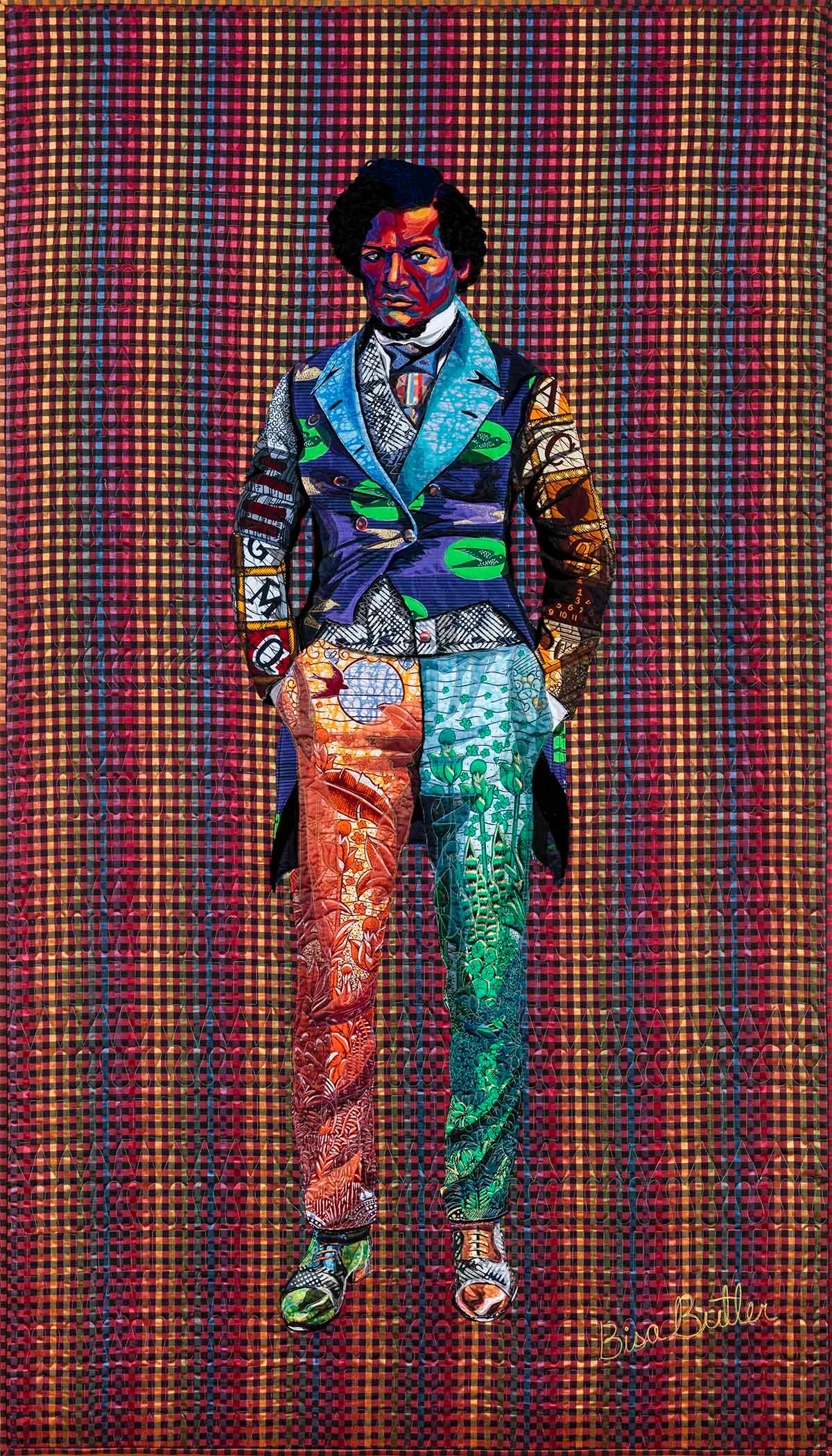The Storm, the Whirlwind, and the Earthquake
Artist: Bisa Butler (American, Born 1973)
Date: 2020
Dimensions:
93 × 54 × 3/8 in. (236.2 × 137.2 × 1 cm)
Medium: Cotton, silk, wool, and velvet quilted and applique
Place of Origin: Brooklyn, New York, United States
Classification: Textiles and Fiber
Credit Line: Purchased with funds from the Florence Scott Libbey Bequest in Memory of her Father, Maurice A. Scott
Object number: 2020.35
Label Text:Bisa Butler’s quilted portraits—made entirely of fabric—display a painterly use of vibrant colors and textures. She uses West African wax-printed fabrics, kente cloth, and Dutch wax prints to connect her subjects to their African roots. Butler’s portraits are based on historical photographs and rendered at human scale, often engaging the viewer eye to eye. “I represent all of my figures with dignity and regal opulence because that is my actual perspective of humanity,” she says.
This quilt portrays the American social reformer Frederick Douglass (1818–1895), who, after escaping slavery, became an influential orator, writer, and leader of the abolitionist movement. Based on several photographic sources, the portrait conveys a powerful and confrontational presence. The work’s title references a famous line from Douglass’s July 5, 1852 speech, “What to the Slave Is the Fourth of July?,” in which he condemns the celebration of freedom during a time of chattel slavery: “It is not light that we need, but fire; it is not the gentle shower, but thunder. We need the storm, the whirlwind, and the earthquake. The feeling of the nation must be quickened; the conscience of the nation must be roused; the propriety of the nation must be startled; the hypocrisy of the nation must be exposed; and its crimes against God and man must be proclaimed and denounced.”
This quilt portrays the American social reformer Frederick Douglass (1818–1895), who, after escaping slavery, became an influential orator, writer, and leader of the abolitionist movement. Based on several photographic sources, the portrait conveys a powerful and confrontational presence. The work’s title references a famous line from Douglass’s July 5, 1852 speech, “What to the Slave Is the Fourth of July?,” in which he condemns the celebration of freedom during a time of chattel slavery: “It is not light that we need, but fire; it is not the gentle shower, but thunder. We need the storm, the whirlwind, and the earthquake. The feeling of the nation must be quickened; the conscience of the nation must be roused; the propriety of the nation must be startled; the hypocrisy of the nation must be exposed; and its crimes against God and man must be proclaimed and denounced.”
On view





